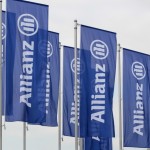Exxon Mobil Corp., which operates a liquefied natural gas project in Papua New Guinea estimated to be worth 19 billion dollars, revealed it is negotiating with Asian customers about selling cargoes on the spot market. The step is undertaken by the company as a preemptive measure to seasonally increasing demand during summer in Asia.
Neil W. Duffin, President of Exxon Mobil Development Company, was cited by the Wall Street Journal as saying: “”Our demonstrated expertise will enable us to progress other LNG opportunities in our portfolio, including expansion opportunities in Papua New Guinea and to meet growing global demand.”
The company revealed it has already made its first shipment from Papua New Guinea, which was headed for Japan. It was supplied by the first of a series of new liquefied natural gas terminals, located in Australia and Papua New Guinea. The other factories are projected to start operating within three years and are expected to shift the focus of natural gas trade away from the Middle East.
“There are a few other customers we’re talking to, and Asia is clearly the focus. We’ll sell on the spot market until we’re comfortable weve got reliable, sustainable sales. We’re not seeing any issues with placing our cargoes,” said in a phone interview for Bloomberg Decie Autin, Exxon Mobil Corp. Project Executive in Papua New Guinea.
The liquefied natural gas project in Papua New Guinea was started four years ago, but the business environment in the segment has changed a lot since then. A shale boom in North America, alongside growing exports by Russia have pressured blue fuel prices.
However, the project is considered extremely beneficial for the economy of Papua New Guinea. Some analysts suggest the venture can more than double the countrys GDP.
As reported by the Wall Street Journal, Mrs. Jenny Haward-Jones, Papua New Guinea expert at the Lowy Institute, commented on the situation: “Its great for Papua New Guinea. It sends an important signal to the international resources community that things can get done here. The big problem is whether the country uses the revenue from PNG LNG to improve living standards here and equally distribute the benefits. It seems to be going well, but you wouldnt want to predict everything will be completely rosy.”





